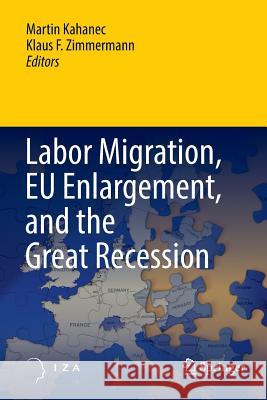Labor Migration, Eu Enlargement, and the Great Recession » książka
topmenu
Labor Migration, Eu Enlargement, and the Great Recession
ISBN-13: 9783662568804 / Angielski / Miękka / 2018 / 476 str.
Kategorie:
Kategorie BISAC:
Wydawca:
Springer
Język:
Angielski
ISBN-13:
9783662568804
Rok wydania:
2018
Wydanie:
Softcover Repri
Ilość stron:
476
Waga:
0.67 kg
Wymiary:
23.39 x 15.6 x 2.49
Oprawa:
Miękka
Wolumenów:
01
Dodatkowe informacje:
Wydanie ilustrowane











